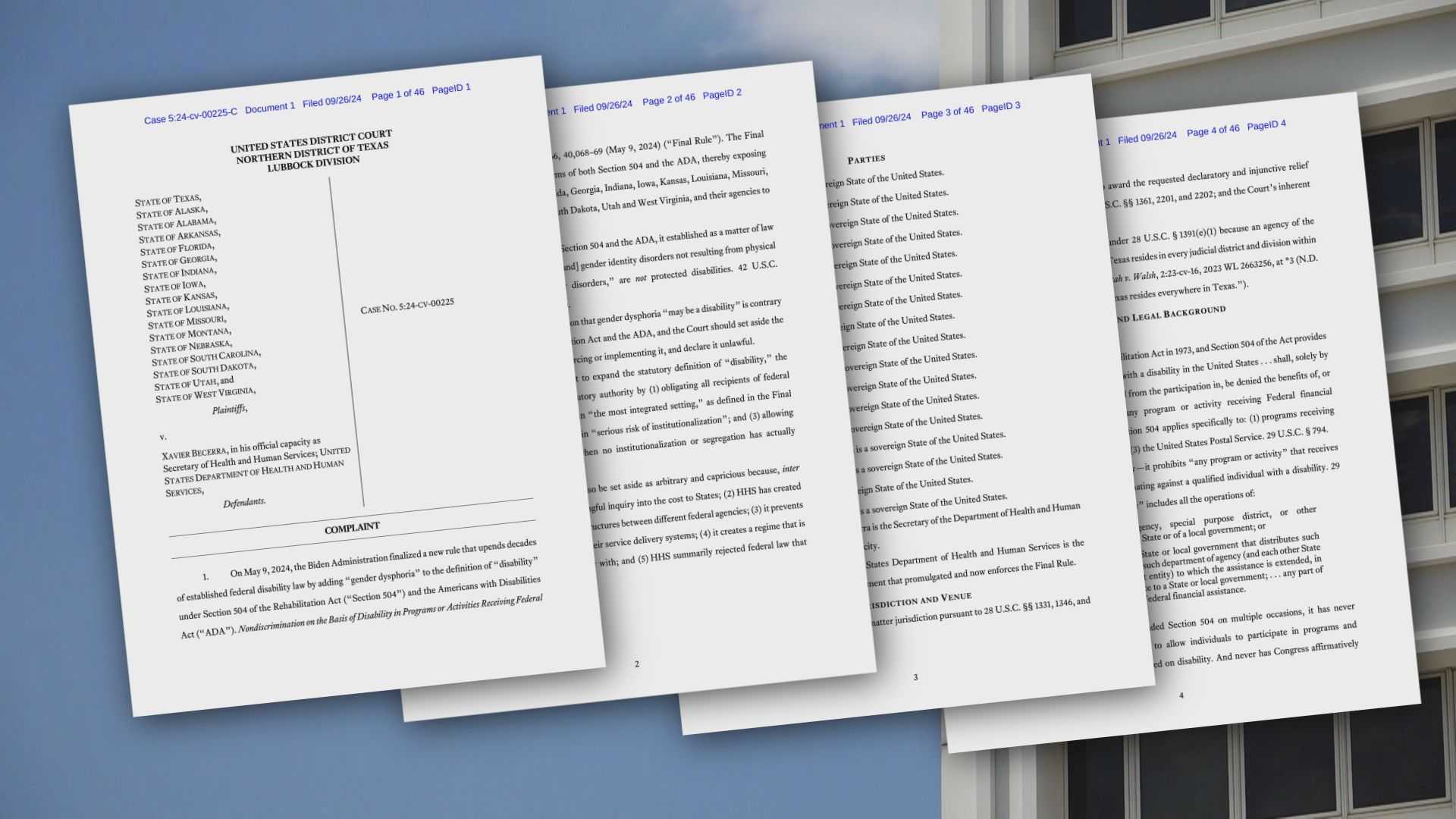Education
17 States Sue Over 504 Plans, Risking Rights for Students with Disabilities

AUSTIN, Texas — A lawsuit involving 17 states could jeopardize protections for millions of students with disabilities across the U.S. The litigation, initiated by Texas Attorney General Ken Paxton in late 2024, challenges recent changes to Section 504 of the Rehabilitation Act, which now includes gender dysphoria among its protected categories.
The lawsuit claims that “Section 504 is unconstitutional” and argues that the provisions are coercive, detached from federal interests in disability, and unfairly retroactive. It seeks a permanent injunction against the law’s enforcement, which ensures access to education resources for students with varying disabilities.
Section 504 has established critical civil rights protections for individuals with disabilities since its inception, ensuring equal access to educational, employment, healthcare, and public service opportunities. Currently, approximately 8.5 million public school students benefit from 504 Plans, designed to help them access a free and appropriate education.
These plans can include accommodations such as extended deadlines, preferential seating, and personalized organizational tools. They are particularly vital for students with conditions that impair their ability to learn, such as ADHD or anxiety. If successful, the lawsuit could dismantle these support systems nationwide, leaving millions without crucial educational safeguards.
The Office for Civil Rights (OCR) within the Department of Education is responsible for investigating compliance issues related to Section 504, but it faces potential budget cuts and reorganization under ongoing government efficiency initiatives led by the Trump administration.
The first round of legal briefs in this case is scheduled for submission on February 25, heightening tensions among advocacy groups. These organizations are encouraging citizens in the 17 states involved to petition against the lawsuit’s progression.
The 17 states named in the lawsuit include Alabama, Alaska, Arkansas, Florida, Georgia, Indiana, Iowa, Kansas, Louisiana, Missouri, Montana, Nebraska, South Carolina, South Dakota, Texas, Utah, and West Virginia. Residents are urged to contact their state attorneys general to express opposition and advocate for the withdrawal from the lawsuit.
The outcome of this lawsuit could have profound implications for education systems and the rights of students with disabilities. Supporters of Section 504 emphasize the importance of safeguarding these protections to ensure equity and inclusion in educational settings.












